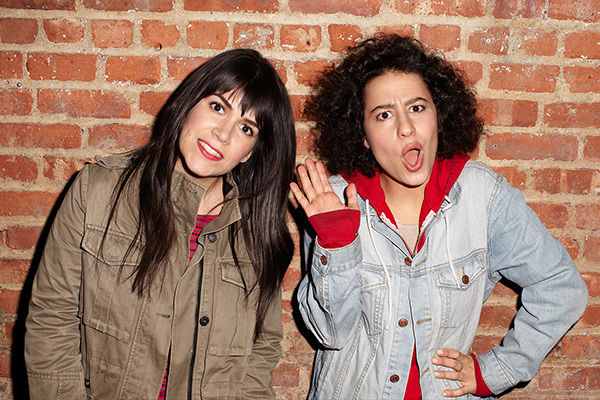
Broad City
I do not claim to know the meaning behind the title Broad City. But drawing from the history of the stars of Comedy Central’s hit show, the name might be an inside joke, a reference to something that creators and stars Abbi Jacobson and Ilana Glazer once said to make each other laugh. But the image it conjures is powerful and appropriate: a broad, bright city, cracked wide open, with an endless skyline bursting with color and possibility. And the city Abbi and Ilana inhabit is vibrant and alive, full of strange faces and stranger subway cars.
Entering its second season, which started Jan. 14, Broad City excels by tightly focusing on the relationship between its two leads. Some of the most popular sitcoms of the past 10 years have focused on large groups of characters and the intricate relationships between them -— countless shows, including 30 Rock, Community and Parks and Recreation, follow the trend of consistent characters and settings. But unlike other city-based sitcoms that follow a handful of people in and out of the same two apartments (Friends or How I Met Your Mother, for example), Broad City rarely depicts Abbi and Ilana interacting with the same people or spaces for longer than an episode. There are new flings, new enemies and new interactions every week, going against the trend of ensemble-based comedy.
Broad City has a fresh narrative quirk compared to other popular sitcoms. A less daring show would play up the characters’ differences, pit the two against each other for drama or cast them as unlikely opposites. But not so for the girls of Broad City. Ilana and Abbi, though different, have a near infinite level of acceptance and love for each other. They never scoff at one another, roll their eyes or make fun, insult or belittle. Everything one girl does is always 100 percent cool with the other. When they fail, they fail together. When they triumph, they triumph together. When one ends up in a hospital for willfully eating shellfish despite an allergy, they end up in the hospital together.
This infinite positivity and acceptance makes the show a joy to watch. It does so in such a cool, genuine way, so even the most cynical will find themselves smiling. Parks and Recreation, with its occasionally grating sweetness and heartwarming moments, looks downright plastic compared to the natural positivity that Ilana and Abbi exude. There are no lessons learned and no forced emotional climaxes. The only resolution needed is two friends walking through Brooklyn at 4 a.m. with the city behind them, wistfully discussing their weird attraction to O.J. Simpson and Howie Mandel.



